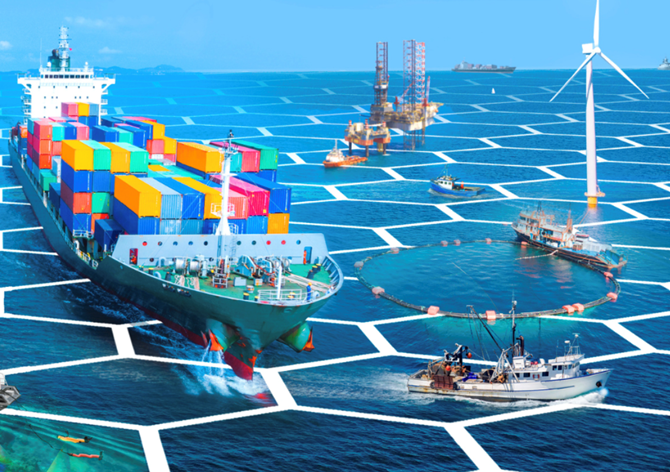NCCOS is hosting a Marine Spatial Planning Workshop in North Carolina to bring together stakeholders from Virginia and the Carolinas and determine the spatial data necessary for informed marine planning, with a focus on blue economy development. The workshop will delve into different aspects of the ocean and examine the best available data, data limitations, and potential data gaps and potential opportunities. The goal is to boost the region’s ability to handle ocean planning and cultivate a community of stakeholders for future marine planning endeavors. Ultimately, this initiative aims to promote sustainable development, safeguard marine resources, and tackle upcoming challenges in the area.

Why We Care
The workshop, organized by NOAA’s National Centers for Coastal Ocean Science (NCCOS) in collaboration with the Bureau of Ocean Energy Management (BOEM), aims to enhance spatial planning capabilities in Virginia, North Carolina, and South Carolina.
Our primary focus is to gather and analyze spatial data to guide marine planning efforts in the region. The workshop is designed to support coastal managers, environmental organizations, and industry stakeholders in preparing for future development in the blue economy, which encompasses renewable energy and aquaculture.
The objective is to familiarize participants with NOAA’s marine spatial planning methods, assess available spatial data, identify data limitations and gaps, and ultimately bolster local capacity and resources for regional ocean spatial planning.
What We Are Doing
The Marine Spatial Planning Workshop happened on April 9–10, 2024 in Beaufort, North Carolina. Each session focused on a different aspect of the ocean, including national security, oil and gas, shipping, commercial and recreational fisheries, weather forecasting, protected species and sensitive habitats, cultural and social resources (including cultural and archaeological sites), and other factors, such as ocean conditions, distance from shore/ports, bathymetry, boundaries, and economics.
In each session, we provided background information and an overview of the current data available for that specific ocean sector. To encourage lively discussions, participants were prompted with questions to explore data limitations, concerns, missing data, and gaps. It is essential for stakeholders to share their insights and help prioritize the importance of each data gap, ranking them as low, medium, or high priority.
The workshop brought stakeholders together to gain a deep understanding of the region on a local level. Our main goal was to gather spatial data for general ocean planning purposes. We are committed to collaborating with all parties involved to ensure that everyone has access to comprehensive data for all future spatial planning endeavors in the area. The workshop’s outcomes will assist coastal managers, environmental organizations, academia, and industry with planning for future development of the blue economy, including renewable energy.
Hosted by NOAA, with support from BOEM, the data workshop was not solely focused on wind energy development planning. However, the data we gathered will be crucial for any future marine spatial planning needs, including wind energy area development and transmission planning. The workshop represents a starting point, with more opportunities for stakeholders to get involved down the line, whether in person or remotely.
Benefits of Our Work
By gathering spatial data and boosting regional ocean spatial planning capacity, the Marine Spatial Planning Workshop will bring about several positive impacts and benefits:
-
- Informed Decision-Making: With comprehensive spatial data, coastal managers, environmental organizations, and industry stakeholders can make better-informed decisions regarding future development in the blue economy.
- Sustainable Development: The workshop will contribute to sustainable development in the area by integrating data on protected species, sensitive habitats, and cultural resources into planning initiatives.
- Enhanced Collaboration: By bringing stakeholders together, the workshop will encourage collaboration and the formation of an engaged community, leading to more cohesive marine planning efforts.
- Resilience to Future Challenges: By identifying data gaps, the workshop will help the region prepare for and tackle future challenges related to marine planning more effectively.
Next Steps
At the end of the workshop, a workshop report will be published that will include a comprehensive list of the available data identified at the workshop, points of contact for acquiring additional data, and a list of identified data gaps.
